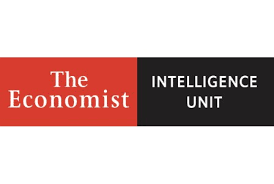
According to the Economist Intelligence Unit (EIU), a research branch of The Economist magazine, a 10% increase in school internet connectivity in a country could raise gross domestic product by 1.1 percent.
On Tuesday in Lagos, the EIU research, which was sponsored by Ericsson, was released in a statement.
A well-educated workforce, according to the survey, is more likely to be innovative and encourage ground-breaking ideas, resulting in economic growth and employment creation.
The report finds that improving school connectivity to finish levels could increase Gross Domestic Product by nearly 20% in Niger, a West African country.
“This means that from 550 dollars per person in the baseline, to 660 dollars per person by 2025,” it said
The EIU report focuses on four essential measures for change, including public-private partnership engagement, which was required to coordinate efforts with stakeholders to overcome hurdles to school connections.
According to the research, constructing infrastructure to enable access to the internet, which is a beginning point, requires accessibility and affordability.
“Also, embedding internet and digital tools into education will allow teachers to be trained and equally integrate technology into everyday learning.
“One other key focus is protecting children online, additional steps must be taken to ensure healthy and protected online learning environments,” it said.
The research also suggested that world leaders from the public, corporate, and non-governmental sectors join forces to make internet connectivity a global reality for schoolchildren of all ages, which may have a significant impact on bridging the digital gap.
As a result, Ericsson has asked to these companies to support Giga (a UNICEF and the International Telecommunication Union-led school connectivity program) with finance, data exchange, and technological knowledge.
According to EIU, Ericsson has pledged to help map the present school connectivity gap across 35 countries through a three-year cooperation with UNICEF.
The Ericsson-sponsored EIU research, Connecting Learners, demonstrates the company’s confidence in Giga’s ambitious objective of connecting all schools and their surrounding communities by 2030.
Heather Johnson, Vice President of Sustainability and Corporate Responsibility, Ericsson, said: “When Giga was announced, we immediately understood the positive impact it could deliver – bridging the digital divide between and within countries
“The report makes it clear that partnership between business leaders, public sector leaders and NGOs can take effective action to address this issue and significantly impact lives,” Johnson said.
Charlotte Petri-Gornitzka, UNICEF Deputy Executive Director, Partnerships said : “Together, we are mapping schools around the world to identify connectivity gaps in communities.
She stressed the importance of collaborating across sectors to connect schools and deliver high-quality digital learning so that every child and young person can advance to a better future.
The EIU analysis demonstrates how improved school connections can result in greater educational outcomes and increased employment options for youngsters, as well as increased economic activity and community expansion.
Other potential school connectivity benefits, according to the report, include improved educational quality, employment generation, and community development, among others.
Source: The Vanguard